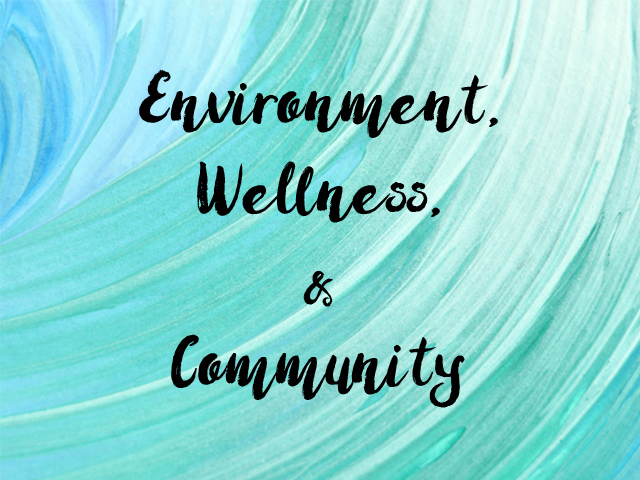Happy Earth Day from the Association of Environmental Studies and Sciences! This Earth Day, AESS wanted to share these great resources for educators and students to use.
Books:
- American Earth: Environmental Writing Since Thoreau
- Edited by Bill McKibben
- “As America and the world grapple with the consequences of global environmental change, writer and activist Bill McKibben offers this unprecedented, provocative, and timely anthology, gathering the best and most significant American environmental writing from the last two centuries.”
- A Walk in the Woods: Rediscovering America on the Appalachian Trail
- By Bill Bryson
- “A 1998 autobiographical book by travel writer Bill Bryson, describing his attempt to walk the Appalachian Trail with his friend “Stephen Katz”. The book is written in a humorous style, interspersed with more serious discussions of matters relating to the trail’s history, and the surrounding sociology, ecology, trees, plants, animals and people.”
- Arctic Dreams
- By Barry Lopez
- “This bestselling, groundbreaking exploration of the Far North is a classic of natural history, anthropology, and travel writing.”
- Cradle to Cradle: Remaking the Way We Make Things
- By Michael Braungart and William McDonough
- “In nature, the “waste” of one system becomes food for another. Everything can be designed to be disassembled and safely returned to the soil as biological nutrients, or re-utilized as high-quality materials for new products as technical nutrients without contamination.”
- Dumping in Dixie: Race, Class, and Environmental Quality
- By Robert D. Bullard
- “Starting with the premise that all Americans have a basic right to live in a healthy environment, Dumping in Dixie chronicles the efforts of five African American communities, empowered by the civil rights movement, to link environmentalism with issues of social justice.”
- Lessons in Environmental Justice
- Edited by Michael Mascarenas
- “Lessons in Environmental Justice provides an entry point to the field by bringing together the works of individuals who are creating a new and vibrant wave of environmental justice scholarship. methodology, and activism. The 18 essays in this collection explore a wide range of controversies and debates, from the U.S. and other societies.”
- Silent Spring
- By Rachel Carson
- “Carson’s passionate concern for the future of our planet reverberated powerfully throughout the world, and her eloquent book was instrumental in launching the environmental movement. It is without question one of the landmark books of the twentieth century.”
- Small Wonder
- By Barbara Kingsolver
- “Whether she is contemplating the Grand Canyon, her vegetable garden, motherhood, genetic engineering, or the future of a nation founded on the best of all human impulses, these essays are grounded in the author’s belief that our largest problems have grown from the earth’s remotest corners as well as our own backyards, and that answers may lie in both those places.”
- The Ripple Effect: The Fate of Freshwater in the Twenty-First Century
- By Alex Prud’homme
- “Alex Prud’homme’s remarkable work of investigative journalism shows how freshwater is the pressing global issue of the twenty-first century.”
- The World Without Us
- By Alan Weisman
- “The World Without Us is a 2007 non-fiction book about what would happen to the natural and built environment if humans suddenly disappeared.”
Film and Television:
- Dirt! The Movie (2009)
- Food, Inc. (2008)
- King Corn (2007)
- Koyaanisqatsi (1982)
- Microcosmos (1996)
- No Impact Man (2009)
- Planet Earth (2006)
- Sharkwater (2006)
Podcasts:
- Brown Girl Green
- Listen: browngirlgreen.org/podcast
- Mothers of Invention
- Listen: mothersofinvention.online
- Outrage + Optimism
- Listen: globaloptimism.com/podcasts/
- The AESS Podcast
- Listen: https://aessonline.org/podcast/
- The Food Fight Podcast
- Listen: eitfood.eu/podcast
Websites and Apps:
- Endangered Species Conservation Site
- “The goal of The Endangered Species Conservation Site is to help inform people about the importance of protecting endangered plant and animal species, profile success stories of species recovery, emphasize the critical role of the Endangered Species Act, and highlight the individual actions that we can take.”
- Website: www.esconservsite.org
- Endangered Species Database
- “Search by species, state, or county in this database maintained by the U.S. Fish and Wildlife Service .”
- Website: www.fws.gov/endangered/
- iNaturalist (app)
- “Every observation can contribute to biodiversity science, from the rarest butterfly to the most common backyard weed. We share your findings with scientific data repositories like the Global Biodiversity Information Facility to help scientists find and use your data. All you have to do is observe.”
- Website: https://www.inaturalist.org/
- SHARE Greater Lynchburg
- “SHARE Greater Lynchburg is a community engagement conduit offering simple ways for neighbors, nonprofits, and businesses to come together and strengthen our local community.”
- Website: sharegreaterlynchburg.org/
Other Opportunities:
- Environmental Justice Boot Camp: Theory and Methods to Study Environmental Health Disparities, a two-day online training course (Aug 2-3, 2021)
Thank you to the AESS members who contributed to this list and the Randolph College Lipscomb Library for sharing their collaborative list of recommended resources!
Other Sources:








